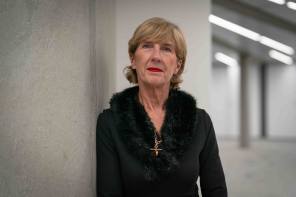

The financial services industry rarely comes together to work for the good of the wider world.
But the Association of British Insurers and other notable institutions in the insurance sector have put their differences behind them to raise money and help those badly affected by the impact of Covid-19.
Yvonne Braun, director of policy, long-term savings and protection at the ABI, is spearheading the initiative from the trade body, raising the project’s profile and reaching out to all the companies in the sector.
She says: “A lot of people in financial services are not feeling [the effects of the pandemic] personally so much because a lot of jobs are very secure, but we know very well what’s going on around the country.
“A significant number of people are not able to work; it’s an incredibly difficult time for so many, whether they have lost someone, or they’re struggling because of lockdown, or they’ve lost their job, and all the stress of pre-existing problems.
“It’s a common humanity thing, where you just look around you and you want to make a difference and help.”
So far the initiative, called the Covid-19 Support Fund, which was launched last month, has attracted £82.5m, of which £20m has been spent.
It has been set up in conjunction with Lloyd’s, the British Insurance Brokers’ Association and the London Market Group, and has drawn donations from across the insurance and long-term savings sector.
Donors include: Aviva; Zurich UK; Phoenix group; LV General Insurance; and Standard Life Aberdeen.
Social responsibility
Ms Braun says: “We have an obligation. If you are an important sector of the economy you have a wider corporate social responsibility; you don’t just look at whether you are being successful in the strict sense of writing new business, but you should also look at what’s going on around you.
“We don’t think any sector should just pretend it’s not happening; it’s everywhere, it’s everyone.”
The trade bodies are working with the the Charities Aid Foundation in terms of administering donations, and there is a governance committee of 10 to 12 people, chaired by Tulsi Naidu, chief executive of Zurich UK, which decides how to distribute the money.
The donations are being targeted at community-based grassroots charities that have been particularly called upon by struggling families and individuals who have less recourse to the usual sources of income.
Ms Braun says: “[These charities] have a double whammy: they have more need, because more people are coming to them, as so many people are affected by this, and a lot of their normal sources of funding are drying up.
“Shops have been shut a long time, and a lot of events are not going ahead.”
For example, a charity may have been relying on hundreds of runners in the London Marathon, which of course has not gone ahead. “That’s a lot of money not coming in; they have demand from people that’s even greater than before.”
Supporting the most vulnerable
The first £20m has gone to the National Emergencies Trust, which was set up in the wake of the Grenfell Tower disaster, to support those directly affected by disaster.
This organisation works very quickly to deliver money where it is needed most, and it is this ethos that Ms Braun says the governance committee wants to continue.
The focus is on: “Very small, grassroots charities, working on the front line, supporting the most vulnerable people, particularly families living in poverty and isolation, and charities that work on mental health.”
The idea originated from the ABI board, which decided it wanted to do something collectively in addition to what the brands were doing individually; but also by working collectively the big corporate names were able to offer an instant network of donors, which would take a long time for a charity to develop.
She says: “We didn’t want to do this under the banner of the ABI; this is something that transcends the ABI brand as it allows other trade bodies and their members to come on board, and I hope others follow.
“We have a network where we can reach a lot of organisations, where if you were an individual charity, doing it individually, it’s much harder to build up that network of contacts.
“In the day-to-day work, we need to be mindful of competition law and do things where competitors can work together. But this is so much bigger than any competitive rivalry that we might have between companies in the same sector.”
Obviously this has all been done while everyone is social distancing and working from home. How has she found the video conferencing aspect?
“It’s quite good for making decisions; so far I would say ever since working from home, for the running of the committee, the decision-making doesn’t suffer.”
And one of the advantages of video conferencing is that it is far easier for people to join in who would normally find getting to London – where the ABI is based – a challenge.
She is appealing to everyone in financial services to help, and while most are dealing with the immediate impact of the crisis, Ms Braun says the group is looking at how they can help longer term.
She says: “We’re looking at what we do next, and how do we create a benefit over time, because we know this crisis is not finished and we know the furloughing is going to end. It’s important to watch how this crisis unfolds.”
For more information go to: https://www.covid19support.org.uk/
Melanie Tringham is features editor of Financial Adviser and FTAdviser



